
@AlienScenarios
franz.essl@univie.ac.at
guillaume.latombe@univie.ac.at
| Having trouble viewing this email? View it in your browser, or get it as a pdf. |
 |
https://alien-scenarios.org @AlienScenarios franz.essl@univie.ac.at guillaume.latombe@univie.ac.at |
|
|
|
|
|
Good
day! |
|
WWF Living Planet Report 2020 |
The World Wildlife Fund (WWF) Living Planet Report 2020 has been published. The report sounds the alarm for global biodiversity, revealing an average 68% decline in animal population sizes tracked between 1970 and 2016 (46 years). Bernd Lenzner, Franz Essl, Guillaume Latombe, Hanno Seebens and Brian Leung from AlienScenarios have contributed a section to explain the still underappreciated impacts of biological invasions on biodiversity, and the need for scenarios to address this issue. "In contrast to other major drivers of global biodiversity loss, the lack of models and scenarios of biological invasions severely hampers the evaluation of ongoing and future rises in invasive alien species numbers." |
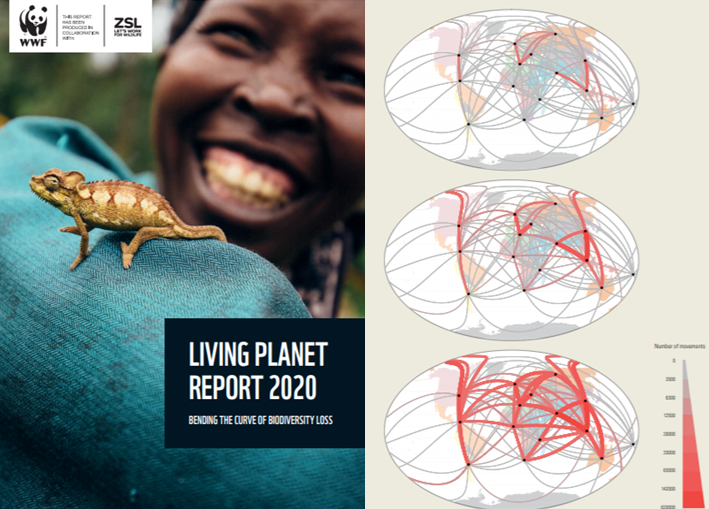 |
|
Participation in the NeoBiota 2020 conference - The Human Role in Biological Invasions: a case of Dr Jekyll and Mr Hyde? |
 |
Despite the challenge posed by the current pandemic of Corona Virus, the NeoBiota conference took place in Vodice, Croatia, on September 15 - 18. It took the form of hybrid format, with most participants attending online. Franck Courchamp and Jonathan Jeschke Franck Courchamp and Jonathan Jeschke gave keynotes on the economic costs of invasive alien species (see also the new article by Diagne & colleagues highlighted below), and on the online hub for a better understanding of science and nature Hi Knowledge, respectively. Franz Essl, Bernd Lenzner, Marina Golivets, Hanno Seebens and Guillaume Latombe presented work from AlienScenarios. We want to thank Sven Jelaska and all the team who organized this great event despite these harsh conditions. |
|
New article on future projections of alien species accumulation: Seebens et al. (2020) |
| The number of alien species has been increasing worldwide, but we still lack clear expectations about future developments of biological invasions. Using a model predicting alien species numbers based on observed developments and species pools, Hanno Seebens & colleagues provide the first quantitative projections of alien species numbers until 2050 worldwide for a range of taxonomic groups and regions. Their projections show that the rise in alien species numbers will continue to grow with little signs of slowdowns. Overall, the number of alien species is predicted to increase by 36 % with particularly steep increases expected for Europe and invertebrates. | 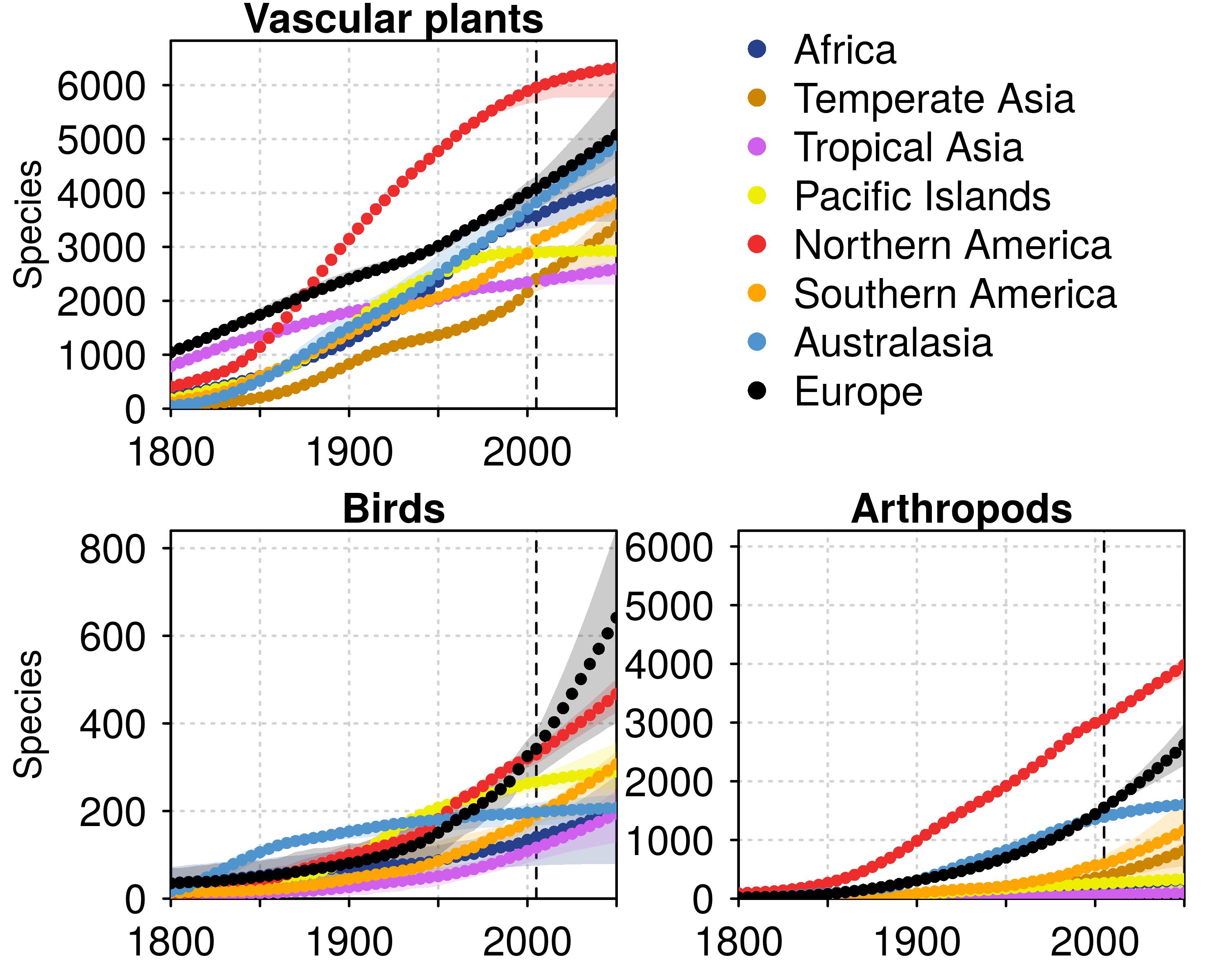 |
|
New article on the global economic costs of invasive alien species: Diagne et al. (2020) |
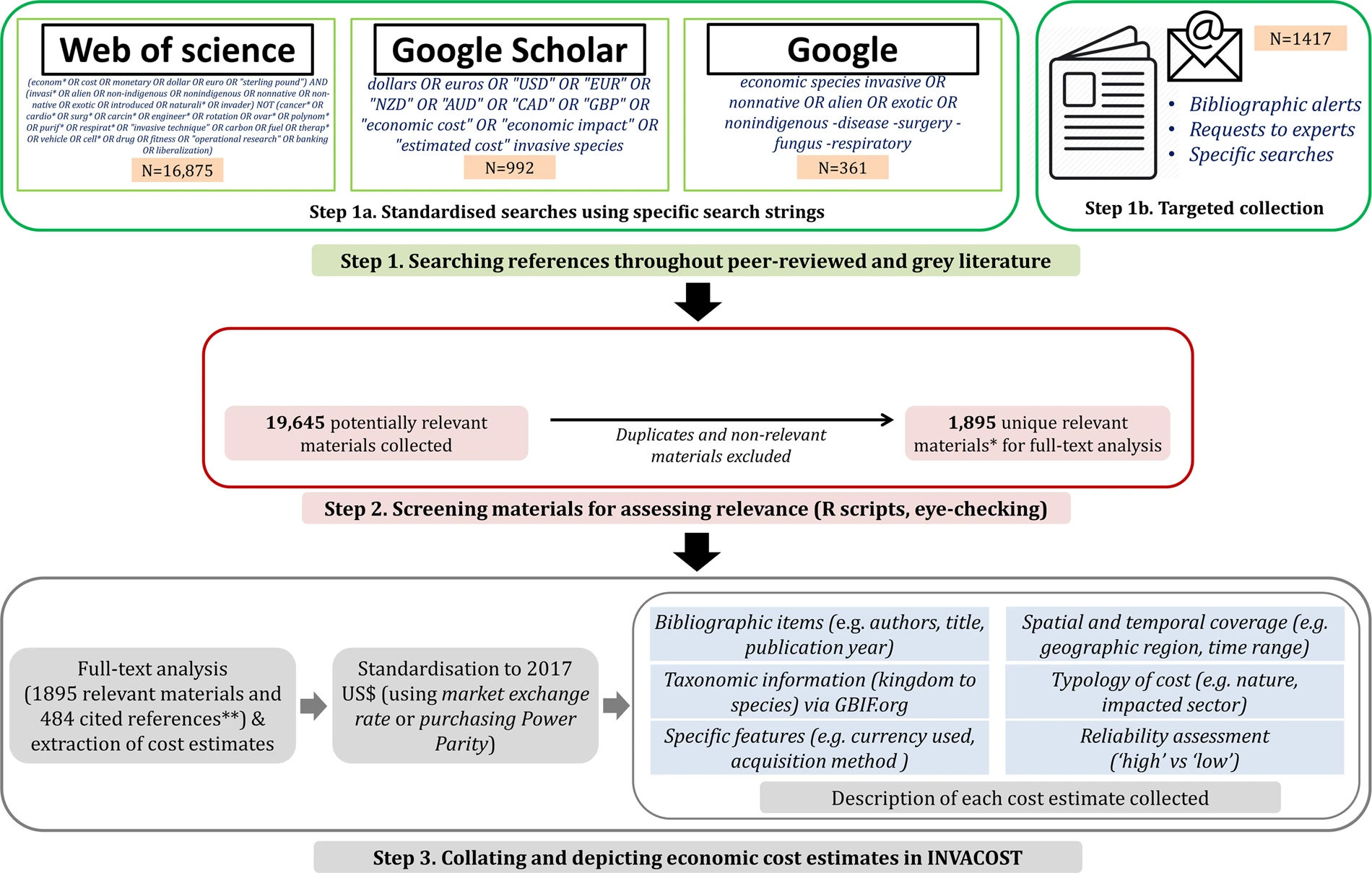 |
A new paper by Christophe Diagne & colleagues
describing the InvaCost database is now published in Nature
Scientific Data. This database is the most up-to-date,
comprehensive, harmonised and updatable compilation and
description of economic cost estimates associated with biological
invasions worldwide. InvaCost provides an essential basis (2419
cost estimates currently compiled) for worldwide research,
management efforts and, ultimately, for data-driven and
evidence-based policymaking on alien species. The article is open-access and the database is currently available in a figShare repository. Following the InvaCost workshop organized one year ago (November 12-15 2019, Paris, France), two InvaCost-related databases were created: one based on non-English sources and the other based on references collected, but not yet processed when building the original database. The next step will be to merge in a single database all information from these InvaCost and InvaCost-related databases. |
|
Two articles on drivers of future biological invasions: Essl et al. (2020) and Lenzner et al. (2020) |
|
In two recent articles published in Global Change Biology and in
Frontiers in Ecology and Evolution, Essl & colleagues and Lenzner & colleagues present
expert-based assessments of the main drivers of future biological
invasions at the global level and for islands. These two surveys highlight the potential for effective communication, scientific research and increased pro-active management of alien species at different scales for reducing consequences of future invasions. |
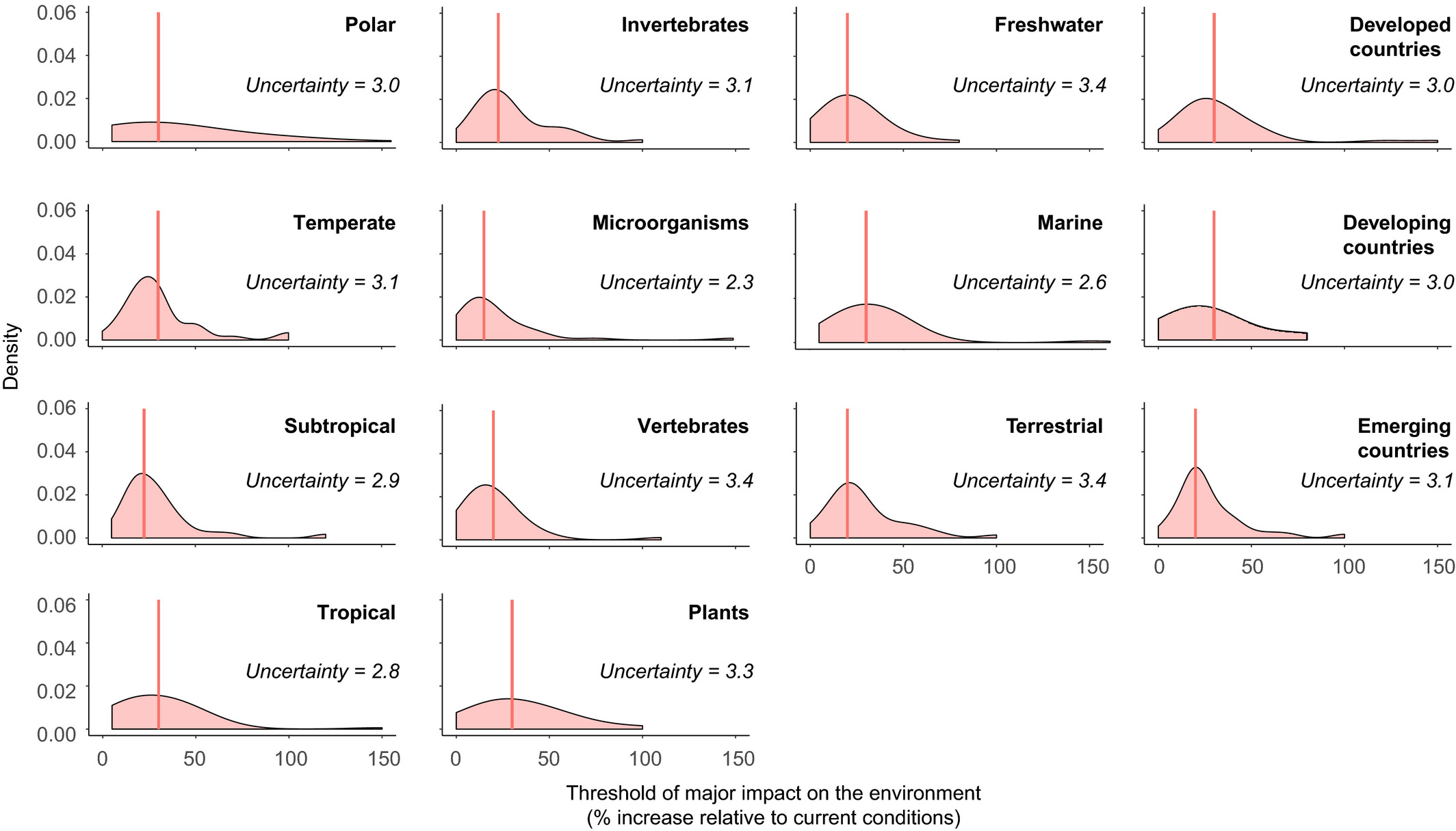  |
|
Second joint AlienScenarios & InvasiBES workshop on management |
 |
The first online workshop co-organised between AlienScenarios and InvasiBES (1-2 April, 2020) concluded with the development of four scenarios for biological invasions at European scale according to potential socio-environmental changes and the creation of an overall management strategy of invasive alien species. The second part of the workshop was held online from 30 September to 2 October 2020, in which the common management strategy of invasive alien species was stress-tested under each scenario aiming to provide consistent management recommendations to future uncertainties and these recommendations were incorporated into the strategy for biological invasions. This workshop was co-organized by members of the AlienScenarios project (Núria Roura-Pascual, WP IV), and the InvasiBES project (Jonathan Jeschke & Wolf-Christian Saul, WP VII), with the collaboration of Lucas Rutting (scenarios facilitator, Copernicus Institute of Sustainable Development, Utrecht University) and Garry Peterson (Stockholm Resilience Centre, Stockholm University). The three-day workshop had about 35 participants from both projects, but also relevant stakeholders on the management of biological invasions across Europe. The organizers would like to thank the involvement and enthusiasm of the collaborators and all participants. Their commitment, time and expertise was paramount to achieve the objectives of the workshop. |
|
In Memoriam: Professor Dame Georgina Mace |
| We are deeply saddened by the passing of Professor Dame Georgina Mace on 19 September 2019. Many of us have been lucky to interact and collaborate with Professor Mace over the years, and she was an advisory board member of AlienScenarios. We are all deeply grateful for the immeasurable impact that she had on conservation science and for making the world a better place. | 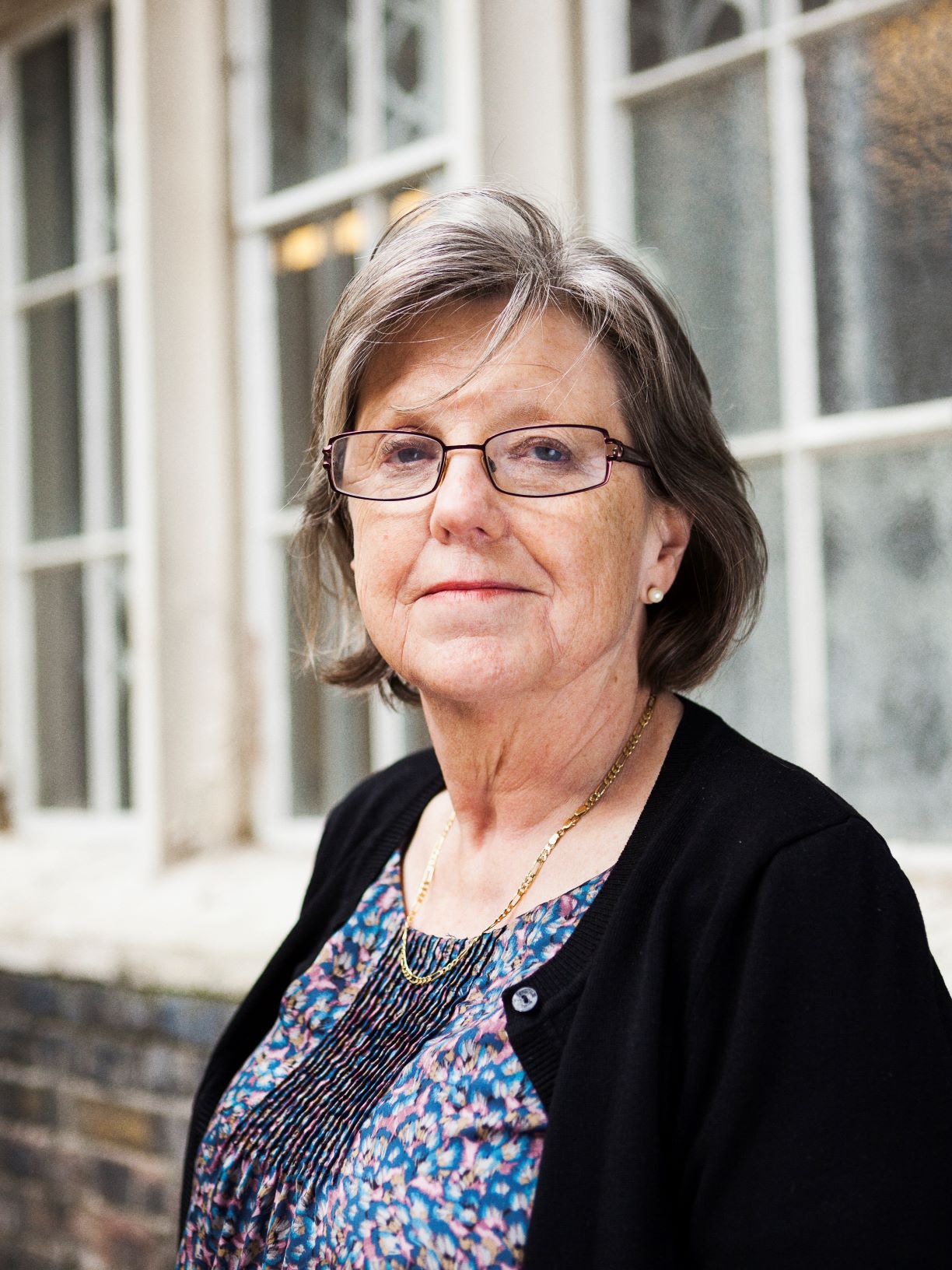 |
|
AlienScenarios early career researchers in the spotlight |
|
In
each issue of the Newsletter, we will highlight two early career
researchers who are part of the AlienScenarios team. In this
third issue, meet Cristian and Bernd! |
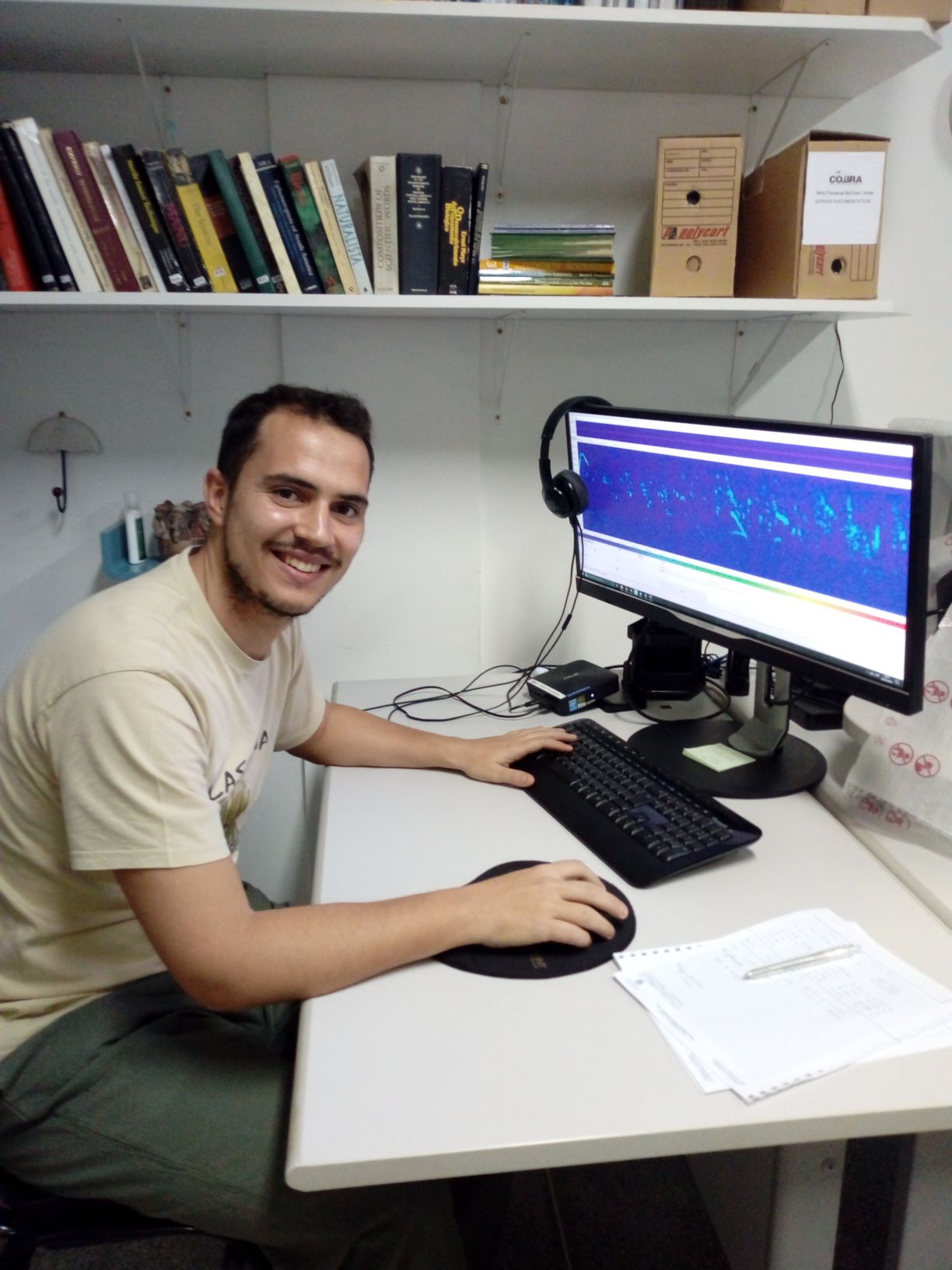 |
Cristian Pérez-Granados I got my PhD on Environment Conservation and Restoration at University of Alicante, Spain, focused on the conservation of steppe birds. I am a postdoc in the Faculty of Sciences at University of Girona, Spain, within the AlienScenarios WP4, with Núria Roura-Pascual. The main goal is to assess the consequences of different levels of implementation of European regulations on invasive species. We will focus on the 49 species of European concern aiming to unravel the effect of different policy strategies and capacities may have on the analyzed species in each member state. In my free time I like riding my bike, see birds and play basketball. If I were a song, I would be Je Veux, by Zaz. If I were a painting, I would be El aire, by Marin de Vos. If I were a fictional character, I would (like to) be Sheldon Cooper. If I were an alien species, I would be Leiothrix lutea. |
| Bernd Lenzner I work as a postdoc at the Bioinvasions, Global Change, Macroecology Group at the University of Vienna, Austria. By training I am a biogeographer and macroecologist with a focus on biodiversity research, especially biological invasions. One of my main interest is to understand biodiversity change from a systemic perspective looking at the interactions of ecology, economy and society. I was involved in the development of the AlienScenarios project and now am associated with WP1 and thus the development of the AlienScenario narratives and the underlying conceptual framework. Within AlienScenarios, I really enjoy thinking about and understanding the interconnections of invasion science across disciplines and to envision how these connections might turn out in the future. Currently, I work on the future importance of drivers of biological invasions based on expert assessments and in down-scaling the global alien species narratives to the continental (i.e. European) level. Besides, I am involved in the currently ongoing IPBES - Invasive Alien Species Assessement where I support the scenarios and models task force. Being involved in both these initiatives is super interesting as they complement and strongly benefit each other. If I were a song, I would be Trickle Down by Fat Freddy's Drop. If I were a painting, I would be La trahison des images, by René Magritte. If I were a fictional character, I would be Calvin (or Hobbes!). If I were an alien species, I would be a raccoon. |
 |
 |
 |
|
Contact Us Visit us on the web at https:\\alien-scenarios.org |
If you no longer want to receive our emails, you can un-subscribe here. |